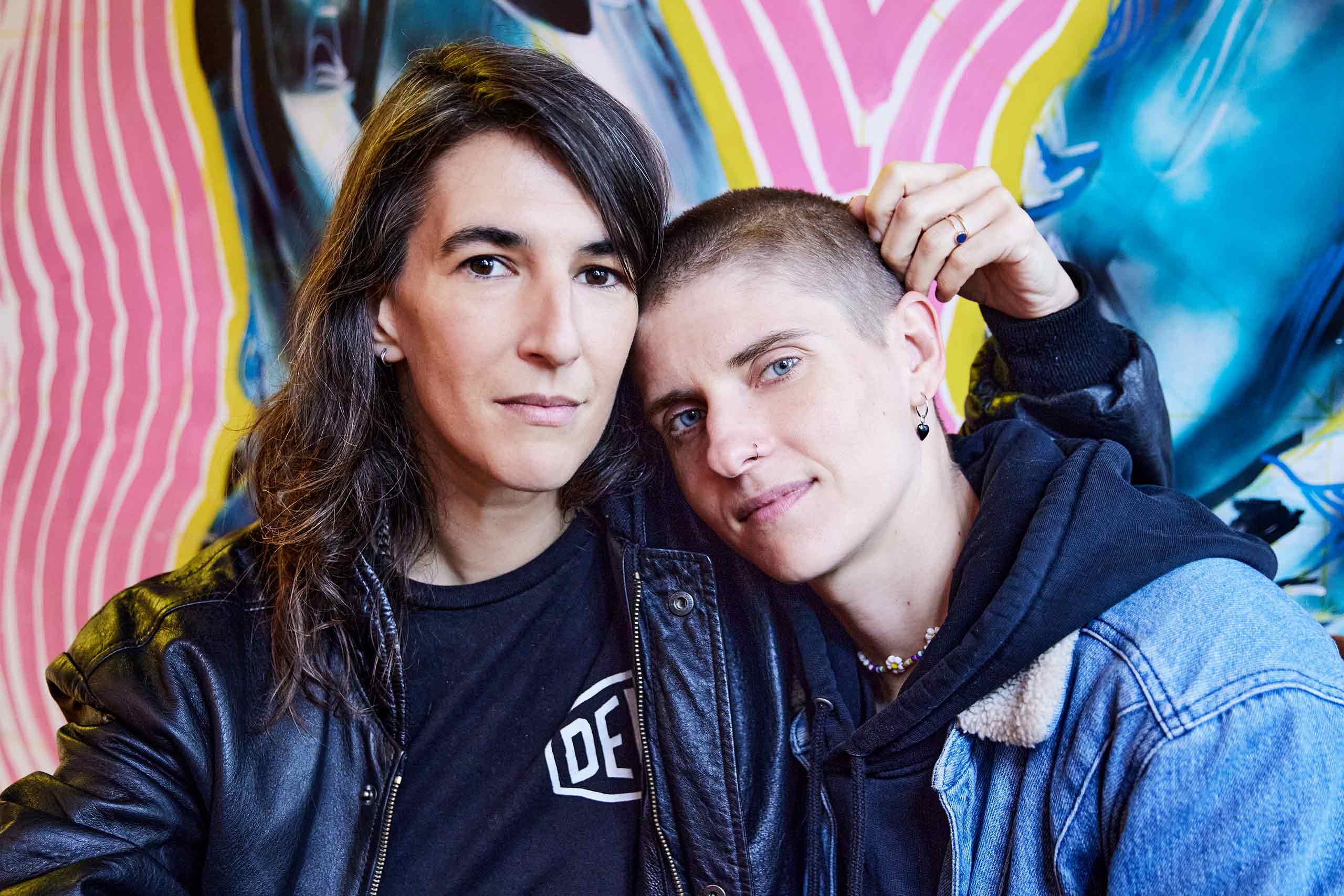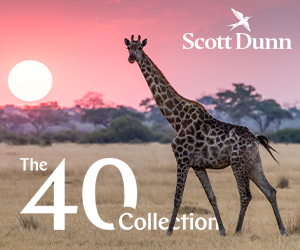A new queer confidence is enriching Paris’ culture and social fabric, say world champion para-cyclist and Paralympian Marie Patouillet and her partner, actor Soraya Garlenq. Both vocal LGBTQ+ activists, they couldn’t be more on board.
It was after she experienced sexist discrimination while taking part in the Tokyo Paralympic Games in 2021 that French para-cyclist Marie Patouillet decided she wanted to do more with her public profile. “If you are an athlete competing at national level, you have visibility. I think it’s a deal, a contract,” she says. “And if you want to try and change things, you have to accept your life is political.”
Fighting to belong has long been in Marie’s DNA. Born with a congenital malformation of her left foot and ankle, she took to sports as a child as a way to answer back bullies – “to show them I could be as strong as them. And to discover and know my body, because no one could answer my questions about how it worked.”
From football to rugby to skiing to surfing, Marie threw herself into them all, but it was when further deterioration in her ankle in her mid-twenties made all sports involving running impossible that in 2017 she first took up para-cycling, which she loved because it brought her the sensations of moving at speed that exhilarate her. Within a year, it was clear that elite-level competition was within her grasp, and she has since won a fistful of medals, including a gold at 2022’s UCI Para-cycling Road World Championships in Baie-Comeau in Canada and two more at this year’s UCI Para-cycling Track World Championships in Rio de Janeiro, Brazil.
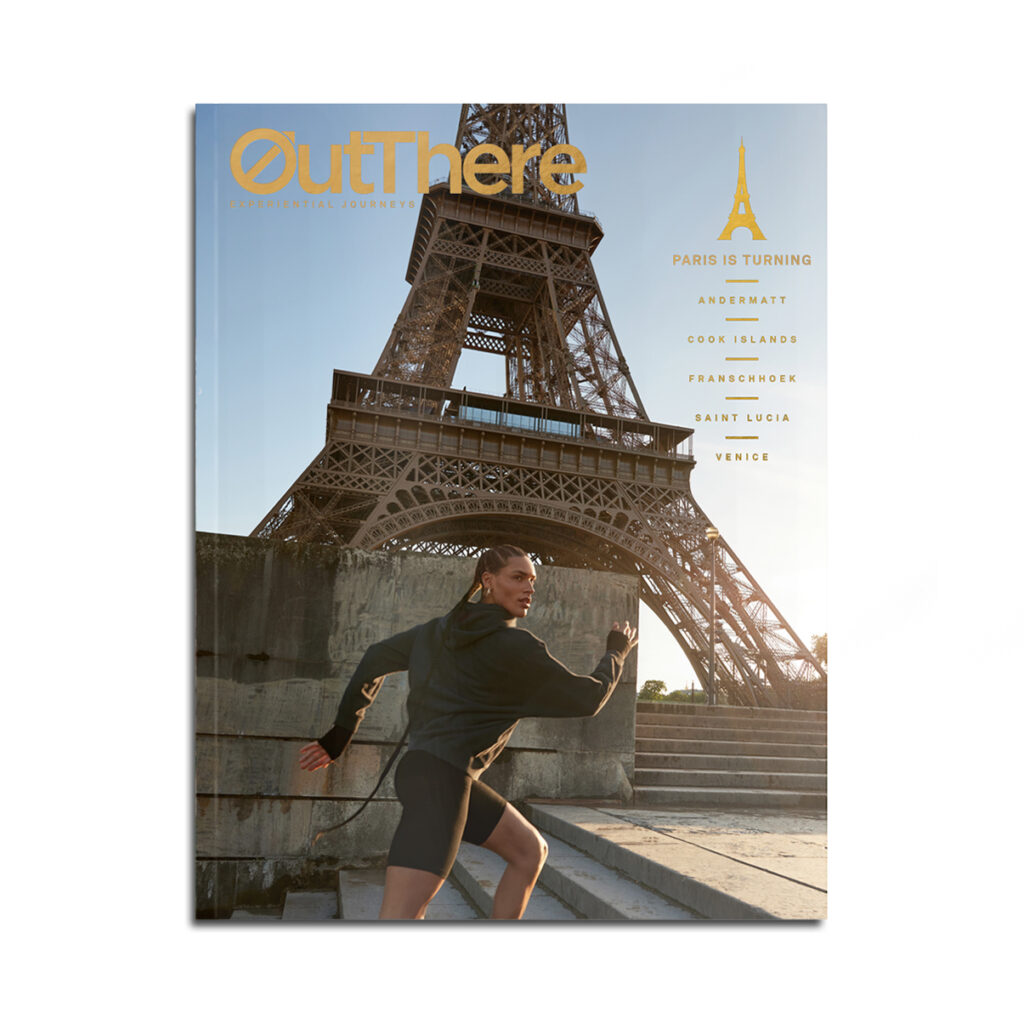
This story first appeared in The Paris is Turning Issue, available in print and digital.
Subscribe today or purchase a back copy via our online shop.
Since returning – with bronze medals in the pursuit and road race events – from Tokyo, she has also taken every opportunity to advocate for people with disabilities, women, and the LGBTQ+ community, within sports and beyond. Among her allies in this endeavour have been luxury goods company LVMH and its star brand Dior, which invited her to be an ambassador and ‘Artisan of All Victories’ for the Paris Games, for both her sporting achievements and her drive to inspire others to overcome obstacles and achieve their full potential. “Fashion is really codified, so for Dior to work with Paralympic athletes, whose bodies don’t match the norms, sends a big message,” she says.
When we meet, on a rainy late-spring Paris afternoon, it is, at the suggestion of Marie and her fiancée, actor Soraya Garlenq, at Violette and Co, a convivial feminist, lesbian and LGBTQ+ bookshop and café in the 11th arrondissement. “This place was opened and run for close to 20 years by a lesbian activist couple,” Soraya explains. “City authorities pressured them for years to close, saying their business plan wasn’t strong enough, but they struggled on, until, with the added pressures of Covid, they retired and closed the shop in 2022. But then a group of younger lesbian activists organised, crowdfunded €172,000, and reopened the business, in these new premises, the following year.”
Packing the street outside with supporters on its relaunch last October, Violette and Co has extended its original remit to host regular talks, readings and association meetings. It’s one of many signs, say Marie and Soraya, of growing queer visibility in Paris that’s tangible across social politics, the arts and nightlife. “Little by little,” says Marie, “the queer community is taking more space.”
“Way more events and marches are happening,” Soraya elaborates, “drag, vogueing and waacking are very big right now and queer expression in visual art is booming. And the new generation is way more active and way more angry, which is a good thing. We need some angry people to achieve change. And we need to be together, to advocate for every little world, not just our own. Trans rights, for example, are so important right now because they are so threatened. Nobody’s free until everybody’s free.”
Born half-French and half-Moroccan in Rabat, Morocco, Soraya shares Marie’s long-standing commitment to defying marginalisation. “I lived in Morocco until I was 18, and although I loved it, I understood very young that its patriarchal culture believed my mind to be less than a man’s, that I was not completely free. And I knew I was gay at around 15, so I knew after school I would move here.”
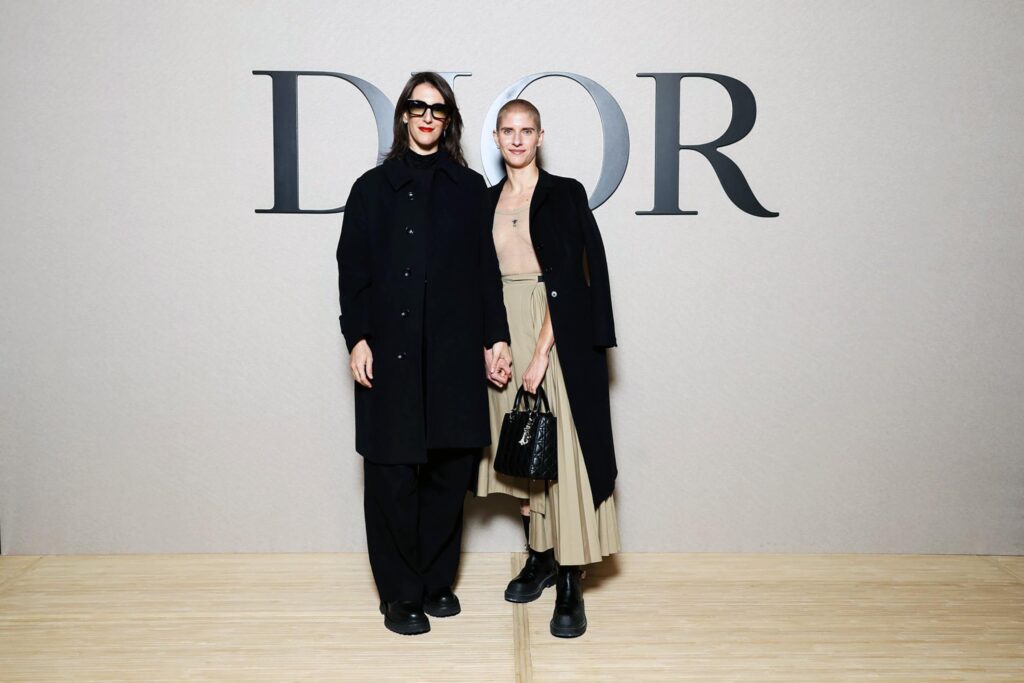
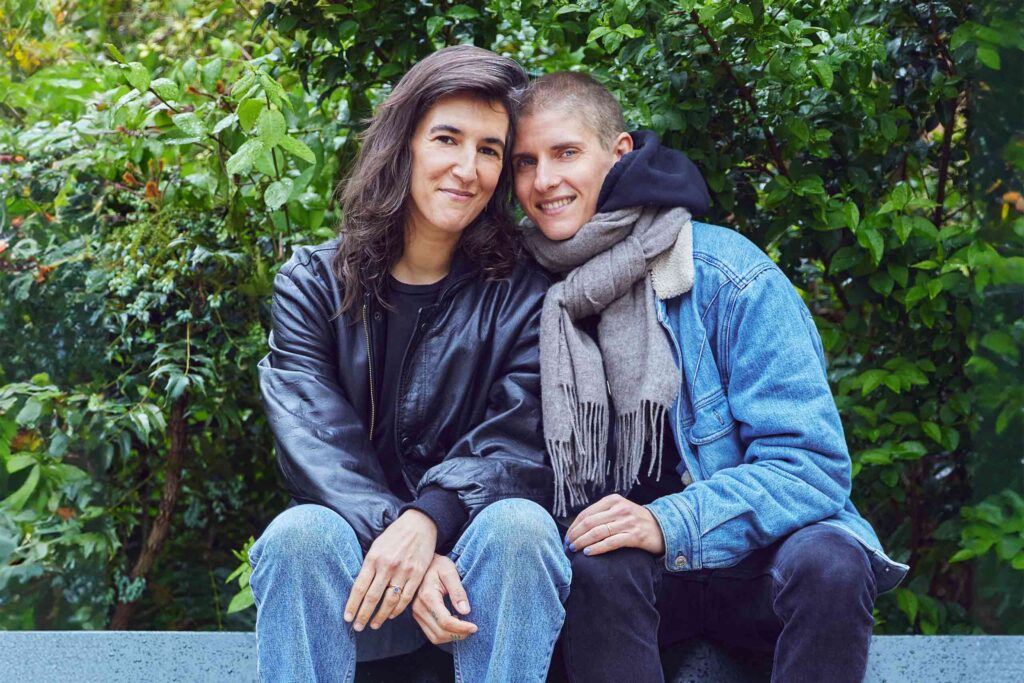
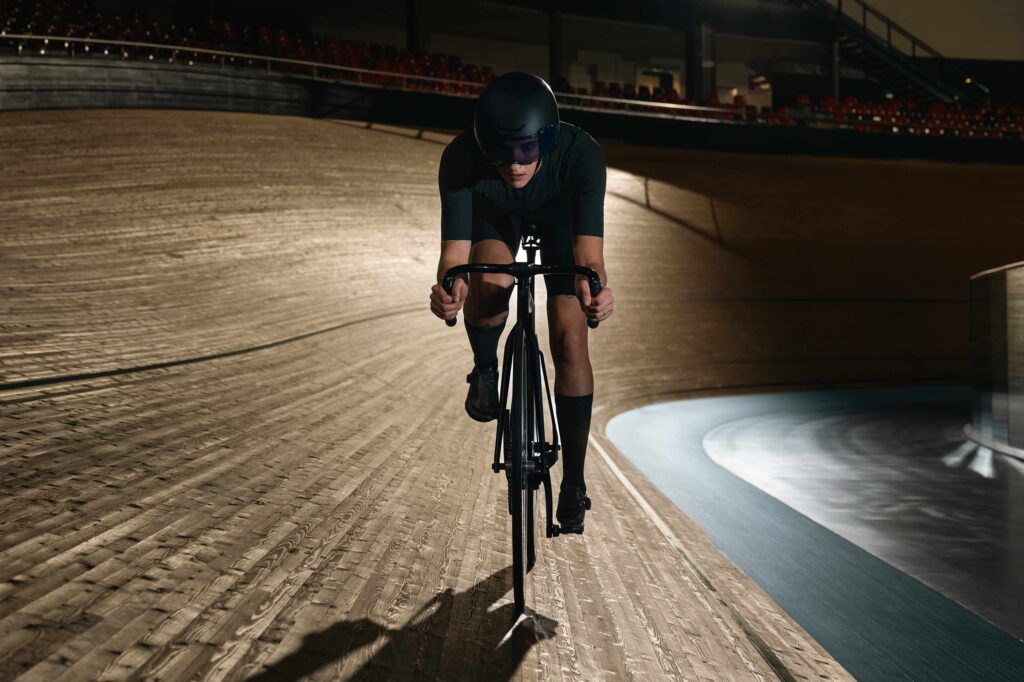
After studying dramatic arts at the Conservatoire de Bordeaux, she established herself in Paris as a stage actor and comedian, never bowing to pressure to play down her sexuality for her career’s sake – still an issue for queer actresses in France, as elsewhere. Landmark roles have included several years as hip-hop fangirl M-Rodz in the comedy “fake musical” Airnadette that she co-devised and which toured internationally with great success, a role in the third season of Donald Glover’s award-sweeping US TV comedy-drama Atlanta and regular – and ongoing – roles in French TV dramas La Stagiaire and Dark Hearts, an acclaimed drama about the Iraq war which sees her play a member of the Kurdish Peshmerga intelligence agency, and which is being shown on streaming platforms around the world. “I get to speak English and Arabic, it’s good for me to be exploring that,” she says. “For 15 years, I was having a great time on stage, I didn’t care about agents, I didn’t need more. But around five years ago, I began to want to diversify, and international opportunities started to come.”
Right now, Soraya is fired up from a recent debut run at Lille’s Théâtre du Nord of Woke, the first play directed and co-written by taboo-trashing novelist and filmmaker Virginie Despentes. Co-scripted with three other queer writers and activists – novelists Anne Pauly and Julien Delmaire and Spanish trans philosopher Paul B. Preciado – the play defiantly but playfully explores through its cast of queer and racially diverse performers the right-wing weaponisation of the word ‘woke’, “against anything that you do, pretty much,” Soraya says, “if you are in favour of liberty and human rights. First of all, it was an honour to work with Virginie. I love her books; they made me the lesbian I am today. And it was exhilarating to work with an all-queer team, who are all from my community and concerned by the same issues. It made our discussions more and more creative and many ideas came in for other projects we could work on.”
Marie, meanwhile, has been keeping her focus firmly on her long-term goal – the Paris 2024 Paralympics, for which she trains for 20 hours a week and has temporarily suspended her career as a general practitioner. “In Tokyo, there was no audience because of Covid, so I am excited to compete with family and friends there,” she says. “The Paralympics will be a great party for Paris, and I hope the media coverage will bring the athletes attention and help more people discover disabled sports. But I try to stay in the moment, day to day. It’s the best way to find performance.”
Marie expresses frustration that French elite sport lacks LGBTQ+ advocacy. “There is a lot of queer sport here, there are LGBTQ+ sports clubs and some football tournaments for women and trans players, and we have the Paris International Tournament” – an annual 30-sport event organised by the Fédération Sportive LGBT+ which brings together some 6,000 athletes from all over France. “But at elite level, the reality is we don’t exist. There are some athletes who are out, but not activists. They don’t speak out about homophobic discrimination. We need a Megan Rapinoe, or a Tom Daley.”
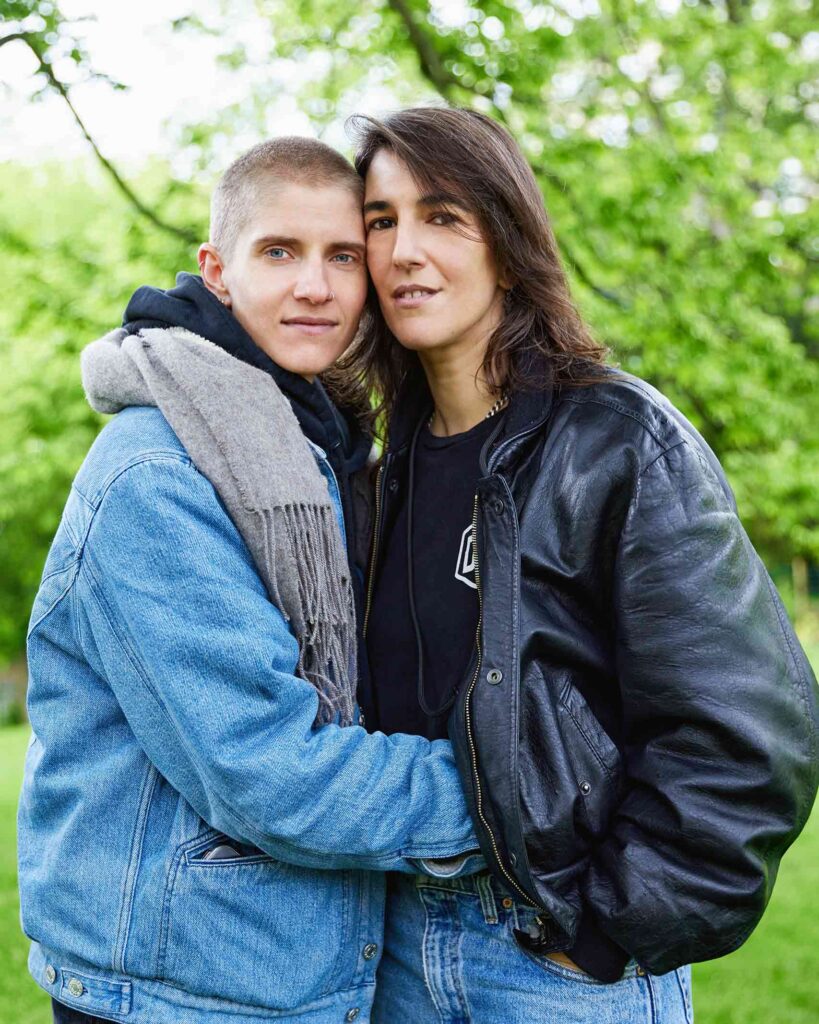
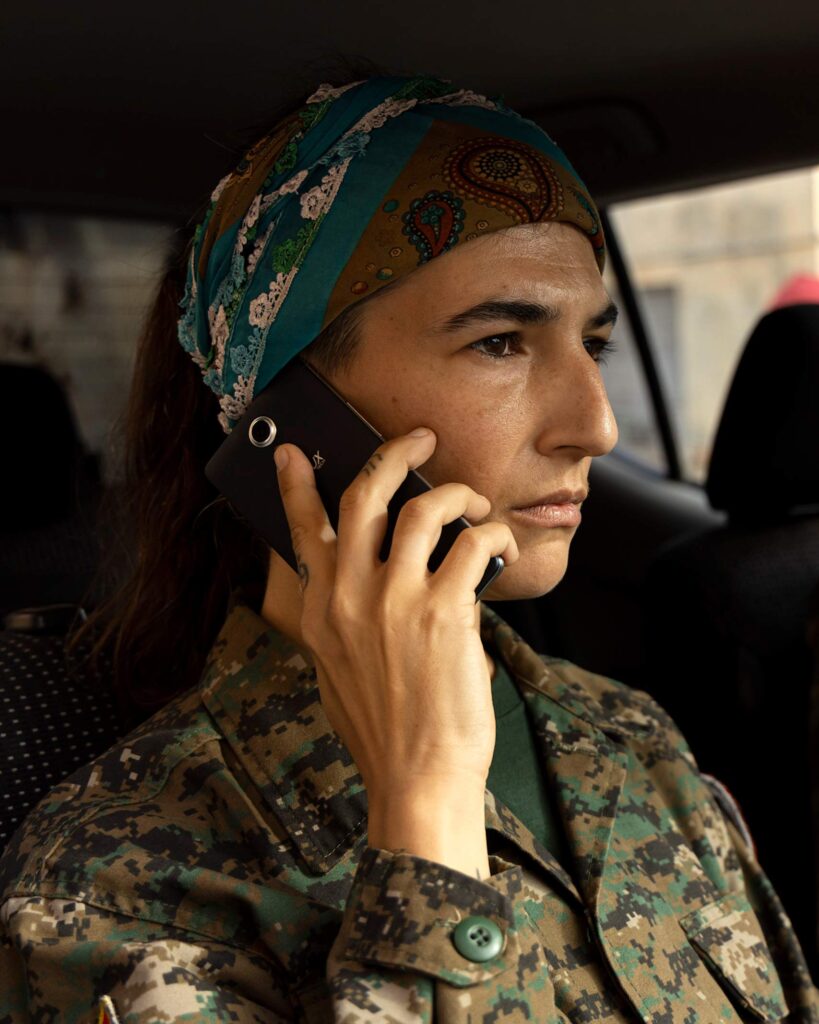
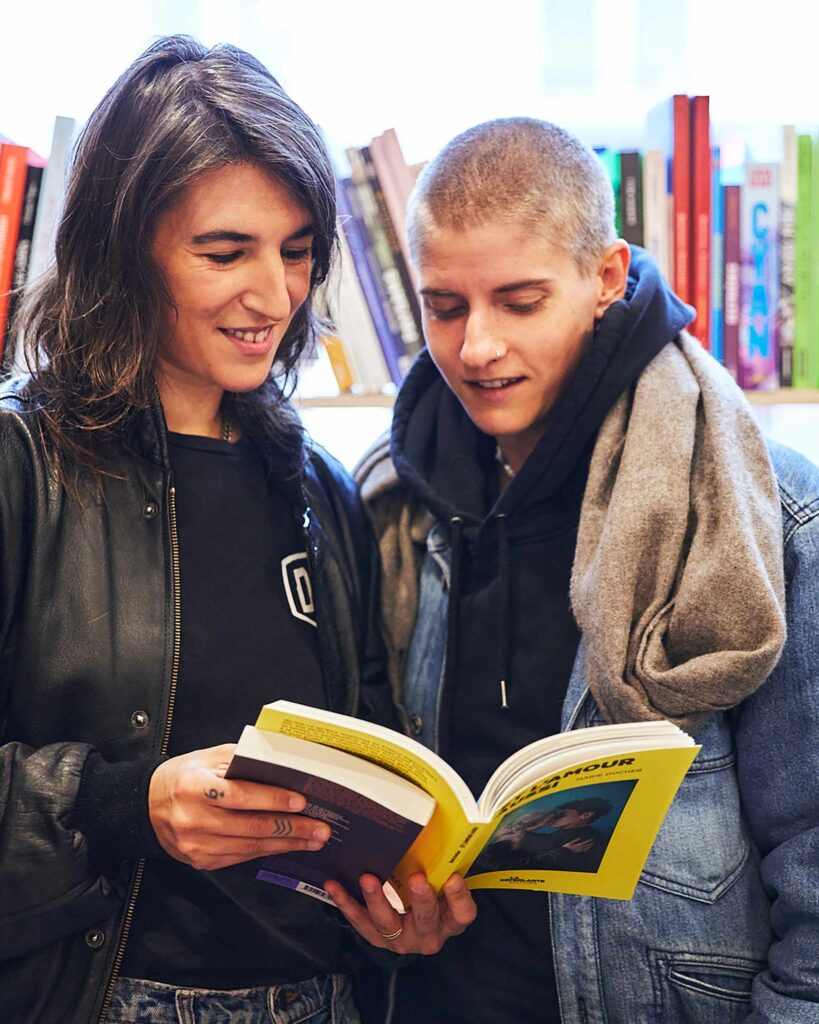
Our next stop is the cute, kitschy restaurant-bar Rosa Bonheur, on a hillside in the beautiful Parc des Buttes Chaumont in the 19th arrondissement, which Marie and Soraya used to frequent a lot when they were living in nearby Belleville. “It’s very family-oriented during the day,” says Soraya, “but always LGBTQ+-friendly, and they have DJ sets, and drag, and great queer nights on Sundays.” They can’t tell me too much about Paris nightlife right now, they say, given their respective schedules, but urge me to check out the queer cabaret scene, which is currently thriving, and a great reflection of the growing cultural confidence they see in the city.
“There’s one almost mythical place called Le Cabaret de Madame Arthur in the 18th, which was Paris’ first drag cabaret bar when it opened in the 1940s, and is still open,” says Soraya. “But there are four or five others which have much more contemporary, politically engaged, underground queer performance. It feels like queer performers and audiences are really reclaiming these spaces and it’s really blooming as a scene. Le Cabaret de Poussière at the theatre Le Zèbre de Belleville puts on fantastic shows, very intelligent and artistic.”
“La Bouche in the 18th is also great,” adds Marie. “And the venue La Flèche d’Or in the 20th. It’s very mixed, very young, very multi-cultural.”
I ask Marie about her own first foray into (non-sporting) performance, when she appeared last year in a 30-second video, À Nos Loves au Grand Jour, produced by Tinder, support organisation SOS Homophobie and Têtu, France’s most-read LGBTQ+ magazine, to mark 2023’s International Day Against Homophobia, Transphobia and Biphobia (IDAHOT). In the short, she and Soraya are among other LGBTQ+ personalities depicted enjoying ordinary moments of tender intimacy – kissing in a car wash, in their case – to celebrate love in all its forms.
“I was excited when the director Sarra Ryma asked me,” she says, “I love her work. But I was a bit afraid because I am not an actor. So I proposed to do it with my wife, and it was a great experience.”
“Your wife?” I ask, having understood that Marie and Soraya were engaged.
“We just moved to a new apartment in Bagnolet,” says Soraya. “First, we have to empty all the boxes. Then let Marie train for the Paralympics. Then we will have time.”
“But already, I love to say ‘my wife’” says Marie with a shy, private smile. She turns to look Soraya in the eyes. “It’s our project.”
@marie_patouillet | @sorayagarlenq
Photography by Martin Perry, Nelson Rosier courtesy of Dior and Sife Elamine courtesy of Mandarin Télévision 2022


